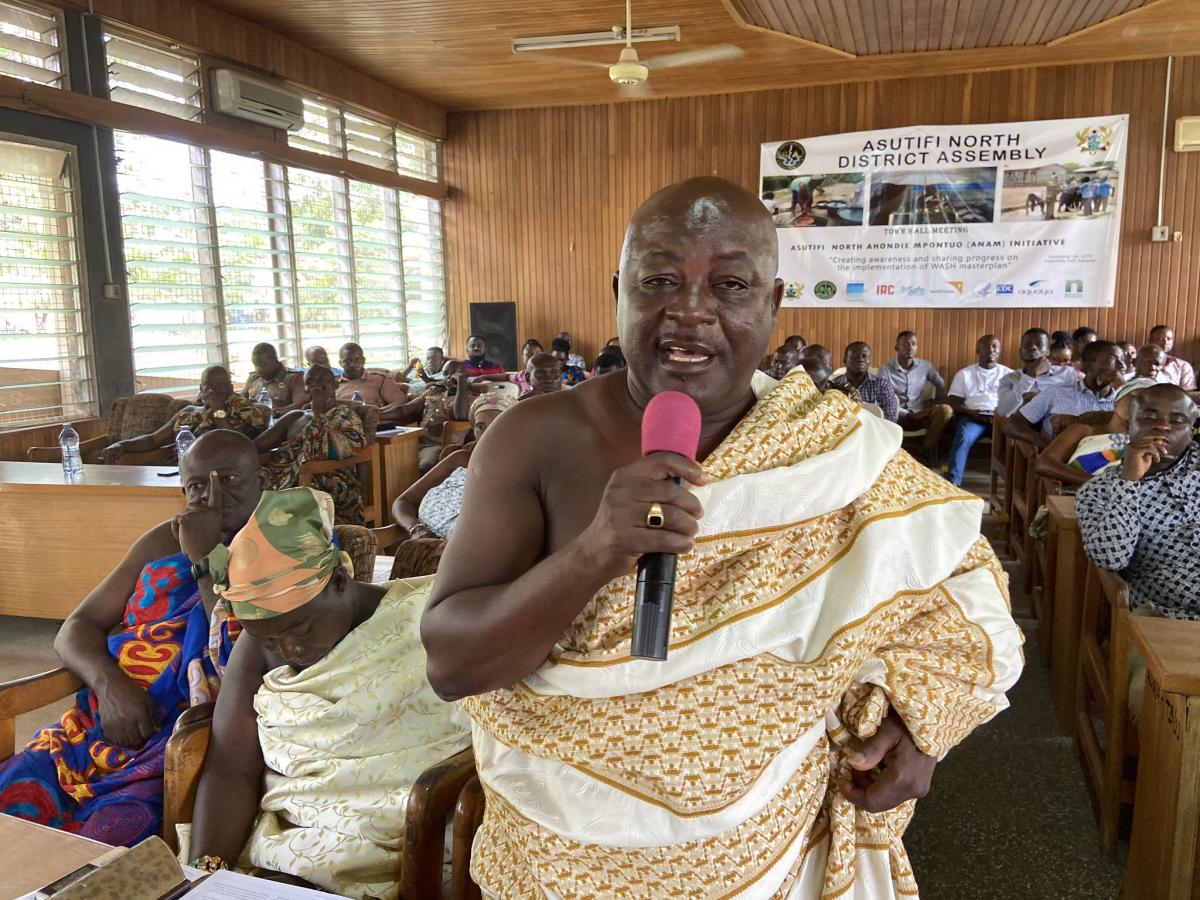
Building new partnerships and setting clear goals to leverage investment.
Published on: 19/04/2021
Photo caption: Ghana - Asutifi North district assembly and partners town hall meeting / Jeremiah Atengdem, IRC Ghana
We’ve got much better in recent years, at both IRC and as a wider sector, acknowledging that too much infrastructure for rural water supply in Africa isn’t working. And recognising that too much of the water being consumed isn’t safe to drink. There are similar challenges in sanitation: far too many people stuck using poor quality and dirty latrines and too many overflowing pits.
Recognising our failures as well as our successes and seeing the chasm between where we stand now, and achievement of the Sustainable Development Goals (SDGs) is proving a force for change. There is more and more momentum behind the idea that we need to strengthen the systems that deliver services, that we need to focus on capacities rather than just infrastructure, and that it’s a mix of policies, partnerships, and people (and more) that can make universal access to services a reality.
Political drive and collective action are essential to addressing the world’s hardest challenges, because success relies on many different people and organisations all delivering their part. That’s true now in tackling the COVID-19 pandemic and it’s true to delivering water services.
At IRC one solution we have been testing to encourage change, and to do things differently to realise such ideas – systems approaches and collective action - is planning. Master planning is rather traditional for engineers but turns out to have been rather radical and effective in the districts where we work. We’ve been putting a lot of emphasis into building new partnerships around master plans and using them to leverage investment. Plans can be boring, and left unused on shelves, but we’ve found (with our partners such as the Conrad N. Hilton Foundation, Water For People, Oxfam, and the Millennium Water Alliance) that they can also be a force for change. In Banfora a new plan has been used to find USD 12 million in new investment in WASH, partly closing a USD 30 million financing gap in the district to achieve SDG 6.
Learn more about planning in the IRC WASH Academy Specialist course: Building blocks of sustainable WASH systems
Getting everyone that needs to be involved to buy into a common path focused on systems strengthening – with governments necessarily at the centre - isn’t easy. But a shared vision, backed up with goals and a plan can go a long way and delivers results. Over the past few years, we have been supporting planning processes in all our focus districts. Last year, 17 partner districts developed new plans across our 8 focus country programmes in low- and middle-income countries. These processes all look different, bending to the context, national planning processes and WASH sector ways of working, but each district WASH master plan sets out clear goals and plans for achieving SDG 6 in a district. We are using such plans to:
Later this year, to scale the impact of master plans in partnership with national planning agencies, we will launch a new district WASH master planning facility in our focus countries including initially Burkina Faso, Ethiopia, Ghana, and Uganda. This will provide access to funding and technical assistance for more districts to develop master plans, and use them to leverage investments in WASH.
At IRC we have strong opinions and we value honest and frank discussion, so you won't be surprised to hear that not all the opinions on this site represent our official policy.